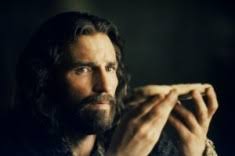The Impact of Jim Caviezel’s Portrayal of Jesus

Introduction
Jim Caviezel’s performance as Jesus in Mel Gibson’s ‘The Passion of the Christ’ (2004) remains one of the most talked-about portrayals of the biblical figure in modern cinema. This film not only left a profound impact on audiences worldwide but also sparked significant discussions regarding faith, art, and the interpretation of religious figures on screen. As the film approaches its 20th anniversary, exploring Caviezel’s portrayal of Jesus holds importance for contemporary discussions on faith and representation in film.
Jim Caviezel’s Role in ‘The Passion of the Christ’
In ‘The Passion of the Christ’, Jim Caviezel depicted the last twelve hours of Jesus’ life, focusing on his crucifixion and the passion leading up to it. Caviezel’s performance was marked by a deep emotional intensity, drawing on physical and spiritual preparation that included fasting and studying the scriptures. By using Aramaic and Latin, he added authenticity to the character, contributing to the film’s visceral impact.
The movie itself grossed over $600 million worldwide, becoming one of the highest-grossing R-rated films in history. It ignited significant interest and debate not only in religious communities but also among secular audiences, marking a turning point in how faith-themed movies could be received in mainstream cinema.
Recent Developments and Caviezel’s Continued Connection to Jesus
Following the success of ‘The Passion of the Christ’, Caviezel’s career evolved, with him taking roles in various films and television series. More recently, there has been anticipation surrounding the sequel, ‘The Passion of the Christ: Resurrection’, which is said to explore the events following Jesus’ resurrection. Caviezel has expressed a profound commitment to the character and the story, indicating that these narratives hold significant personal and spiritual importance to him.
Notably, Caviezel has also faced his share of controversy, especially due to his outspoken views related to faith, politics, and current events. This has added layers to his public persona as an actor who not only plays a pivotal role in a significant religious film but also engages in discussions about spirituality in a modern context.
Conclusion
Jim Caviezel’s portrayal of Jesus has undoubtedly left a lasting legacy in cinematic history, inviting audiences to engage with profound themes of sacrifice, redemption, and faith. As plans for the sequel develop, discussions around his original performance continue to be relevant, reflecting on how art can influence belief systems and individual interpretations of religious narratives. With the continuation of Jesus’ story on screen, audiences are likely to reflect again on the significance of Caviezel’s role, making it an important topic for both film lovers and members of the faith community alike.









